Constitution
Health care reform bill challenge details

A comprehensive legal challenge to the health care reform bill and to the judiciary itself is on its way to the Supreme Court. The plaintiffs in that case began by alleging fifteen separate violations of the Constitution and various anti-trust and civil-rights laws. Now they allege collusion between government and a judiciary that will not even follow its own rules.
The questions before the Supreme Court
Plaintiffs Nick Purpura (Wall Township, NJ) and Donald R. Laster, Jr (West Long Branch, NJ) bring six immediate questions to the Court. All six have to do with how the US District Court for New Jersey, and the Third Circuit Court of Appeals, have handled their case.
At issue is whether they, as private citizens, have standing to bring the specific complaints in their lawsuit (Purpura v. Sebelius, Docket No. 3:10-cv-4814). But also at issue are:
- The reasoning of the District Court in abruptly, at the last minute, deciding that they lack standing, and
- Whether two judges on the Third Circuit Court, both of whom owe their appointments to the man now sitting as President, should have heard the case at all.
The latter is at issue because the lawsuit alleges that Barack H. Obama had no authority to sign the health care bill into law. The reason: his father was an alien, so he, Mr. Obama, is not a natural-born citizen.
Purpura and Laster believe that the District Court and the Third Circuit Court have broken their own rules repeatedly. For that reason, their petition for a Writ of Certiorari asks whether:
- Any federal court can refuse to adjudicate a constitutional challenge. (Earlier case law says that any citizen has standing to complain that a law is unconstitutional.)
- Amendments I (Right of Petition) and V (Due Process of Law) allow any citizen to assert that an act is unconstitutional if it limits judicial review. The health care reform bill does this.
- Courts can break several statutes, the Federal Rules of Civil (and Appellate) Procedure, earlier case law, and the United States Code to stop a constitutional challenge.
- Purpura and Laster have shown that the health care reform bill does them an injury-in-fact, and
- Whether individual jurists can flout law and precedent and, say the petitioners, try to break them financially with “unfair costs.”
To support their claims, Purpura and Laster set forth a detailed record of how the two courts handled their case. They use half their 24-page petition to summarize an extensive record. CNAV and the Essex County Conservative Examiner have covered this case in detail. Briefly, these Courts seem to have:
- Granted free passes to the government to send briefs, motions, and other papers after the deadlines for the same had long since passed,
- Ignored the failure of the government to answer at least six of the counts that the plaintiffs present,
- Refused to enter default judgments when the plaintiffs have, on sound grounds, so directed, in complete violation of the applicable rules,
- Ignored multiple binding precedents, a thing that alone requires the Supreme Court to clarify the state of the relevant case law,
- Systematically stopped the plaintiffs from arguing their case or any of their motions, and
- Allowed jurists to take part who had no business taking part, because they hold a fiduciary interest in the outcome—to wit, their jobs.
The case against the health care reform bill
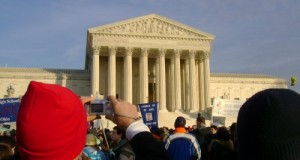
The United States Supreme Court, with several March for Life participants in the foreground. Photo: CNAV files
The other half of the petition sets forth, again, Purpura and Laster’s objections to the health care reform bill. These objections are not merely political. Most follow directly from the Constitution. Others follow from existing laws that the health care reform bill does not repeal, and are still in force.
- The health care reform bill, HR 3590, originated in the Senate, not the House. (I.7.1).
- The bill, through its Minimal Coverage Mandate, improperly extends the Commerce Clause (I.8.3).
- It raises and supports what would be an eighth uniformed service, under a four-year appropriation (I.8.12). That service would be the Ready Reserve Corps. Why members of that Corps must receive weapons training, no one in the government has ever explained. (Officers of the present Public Health Service Corps, under the command of the Surgeon General, do not carry weapons in line of duty.)
- It levies a non-apportioned capitation tax (I.9.4). This count anticipates a ruling that the penalty for failing to satisfy the Minimal Coverage Mandate is a tax, not a fine.
- It lays a tax on selected State exports, i.e. medical devices (I.9.5).
- Obama is not a natural-born citizen (not to be confused with a “citizen at birth”), because his father was an alien (II.1.5). And for that reason, he may not sign the health care reform bill, or indeed any other bill.
- It double-taxes income, or taxes nonexistent income (Amendment XVI).
- It makes patient records subject to warrantless search and seizure (Amendment IV). Secretary Kathleen Sebelius, the lead defendant, has already said that she wants access to those records.
- It deprives people of property without due process of law (Amendment V), and makes involuntary servants of them (Amendment XIII), through the Minimal Coverage Mandate.
- It directs States to take property without due process of law and to deny their citizens and lawful residents the equal protection of the laws (Amendment XIV).
- It establishes certain religions as favored by granting selective religious exemptions (Amendment I). Specifically, the health care reform bill refers to that section in the Social Security Act that grants a religious exemption. The catch: any religion, sect or division holding that health insurance is sinful must have existed since December 31, 1950.
- It attempts to limit judicial review of key provisions (Article III). The intent might be to get around a lawsuit alleging an anti-trust violation, in that the health care reform bill creates government or government-protected monopolies.
- It discriminates among races, through some grant programs and through taxes on activities that only certain races would pursue (Amendment XIV; Title VII)
- It implicates Congress in an act that violates their oath to support the Constitution (Art. VI). And finally:
- It arrogates to the federal government certain un-enumerated powers, thus infringing upon reserved powers (Amendment X).
The other cases that the Supreme Court has received, address very few of these counts. They are Counts 2, 15, and arguably 4 and 5. Other litigants have tried to raise something like Count 6, but none has specifically said that Obama is not qualified to sign a bill.
The Supreme Court has received many other challenges to the health care reform bill. It will devote its entire regular end-of-week administrative meeting on November 10 to deciding which cases to accept or reject. Purpura and Laster want the Court to consider their case at that meeting.
Featured image: the Constitution of the United States. Photo: National Archives
Related:
- Supreme challenge
- Privacy violations
- Setback
- Opposition brief
- Revised motion
- Legal confusion
- Frustration
- More motions
- Recusal motion
- Default motion
- Appeal skirmish
- Commerce, health care, and distortion
- Plaintiffs seek injunction
- Appeal delayed
- Plaintiffs have standing after all
- DOJ wants more time on HCR appeal
- Another appeal
- Hazardous to your health
- Court dismissal
[amazon_carousel widget_type=”ASINList” width=”500″ height=”250″ title=”” market_place=”US” shuffle_products=”True” show_border=”False” asin=”B00375LOEG, 0451947673, 0800733940, 0062073303, 1595230734, 1936218003, 0981559662, 1935071874, 1932172378″ /]
Terry A. Hurlbut has been a student of politics, philosophy, and science for more than 35 years. He is a graduate of Yale College and has served as a physician-level laboratory administrator in a 250-bed community hospital. He also is a serious student of the Bible, is conversant in its two primary original languages, and has followed the creation-science movement closely since 1993.
-
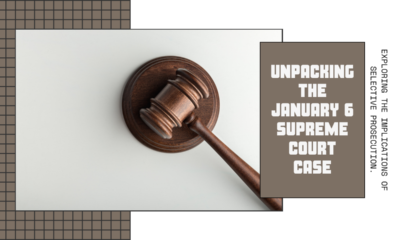
 Executive2 days ago
Executive2 days agoJanuary 6 case comes down to selective prosecution
-

 News2 days ago
News2 days agoRolling the Dice on Republicans: Has the Right Become Delusional?
-
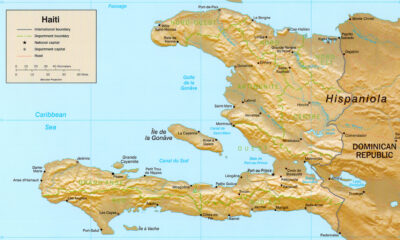
 Civilization1 day ago
Civilization1 day agoPresident Biden Must Not Encourage Illegal Mass Migration From Haiti
-
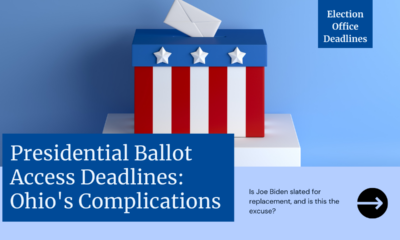
 Executive22 hours ago
Executive22 hours agoBiden ballot woes continue
-

 Executive1 day ago
Executive1 day agoWhy Fatal Police Shootings Aren’t Declining: Some Uncomfortable Facts
-
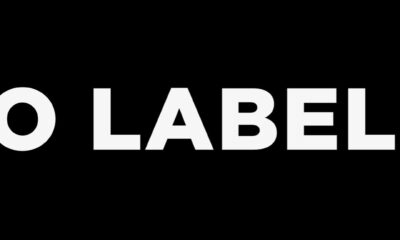
 Guest Columns1 day ago
Guest Columns1 day agoWhat Was Won in No Labels’ Crusade
-
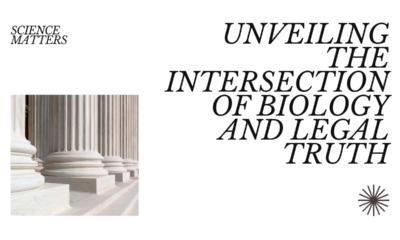
 Civilization2 days ago
Civilization2 days agoBiology, the Supreme Court, and truth
-

 Constitution1 day ago
Constitution1 day agoEquality Under the Law and Conflicts of Interest in New York





[…] Challenge details […]
[…] Challenge details […]